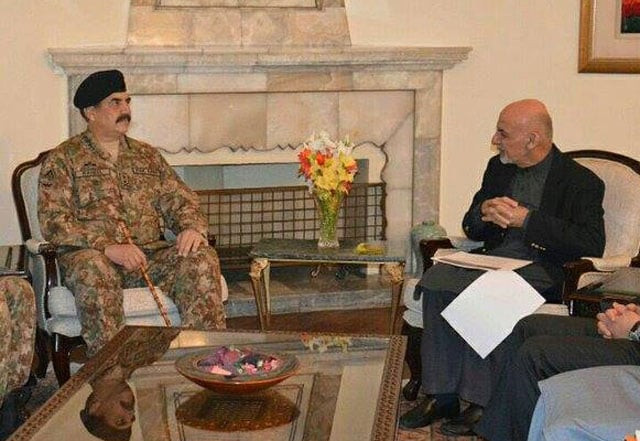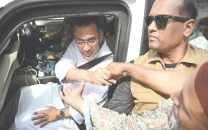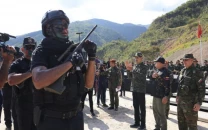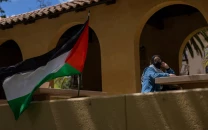Crafting an Afghan peace
There is a trust-deficit between Pakistan and Afghanistan that is not going to disappear overnight

Chief of Army Staff General Raheel Sharif in a meeting with Afghan President Ashraf Ghani in Kabul on December 27, 2015. PHOTO: ISPR
Today as 2016 looms, there is a multifaceted set of initiatives involving not only Afghanistan but Pakistan, the US, China and India along with other players in the shadows. All have their own agenda, and the ‘any peace must be Afghan owned’ mantra is on the lips of all, but uttered with varying degrees of conviction. On December 27, Pakistan and Afghanistan decided to take the first formal steps towards reconciliation under the aegis of the Quadrilateral Framework, which also includes China and the US. The date and venue are yet to be decided as is the level of representation, but January 2016 seems to be a possibility. If it happens, it will be the first significant move in unison by all players since the death of Mullah Omar was announced.
The meeting was announced during the visit to Kabul of Chief of Army Staff General Raheel Sharif, whose emergence as a heavyweight foreign policy player in the last year has had an impact right across the spectrum of Pakistan’s international relationships. He met with the Nato chief in Afghanistan and the co-leaders President Ashraf Ghani and Chief Executive Abdullah Abdullah. These men and their staffs are working to get through a narrow window of opportunity. With the ‘reconcilable’ elements of the Afghan Taliban at least not actively impeding the possibility of future talks, they are not making much by way of a move to facilitate them either. The ‘irreconcilable’ elements have been put on notice that they could be targeted if they do not join others at the table.
Even within the formal political structure of Afghanistan, there is little unity regarding any peace process and a prominent member of the country’s opposition spoke of his mistrust of Pakistan and opposed its inclusion in the process, claiming that it wants to “control the insurgency”. Further afield, India in its latest engagement with Pakistan will be looking to capitalise on trade opportunities with Afghanistan, which inevitably will mean transit across our country. China will also be keen to ensure that its multi-billion dollar investment in the China-Pakistan Economic Corridor is safeguarded.
There is a trust-deficit between Pakistan and Afghanistan that is not going to disappear overnight. It goes back decades and if Pakistan is to play any meaningful role in the upcoming negotiations, it is going to have to do so with both hands on the table. This is no time to play both ends against the middle. Pakistan is a party to the process, but it does not and cannot be seen to be in any way owning that process. Pakistan is not helming, but it may be setting a course, at least for now, though the inherent weaknesses of the Kabul government feed through into anything the Quadrilateral Framework manages to put together. There is no certainty that in a year’s time, or two, that there will not be a Taliban government in Kabul. In Afghanistan in 2016, there is all to play for and potentially everything to either win or lose.
Published in The Express Tribune, December 29th, 2015.
Like Opinion & Editorial on Facebook, follow @ETOpEd on Twitter to receive all updates on all our daily pieces.




1726734110-0/BeFunky-collage-(10)1726734110-0-208x130.webp)














COMMENTS
Comments are moderated and generally will be posted if they are on-topic and not abusive.
For more information, please see our Comments FAQ